 Dr Robert de Bellevue MD, Grange lover and collector,
with partner Julie, entertains some friends at his regular Grange
dinner in New Orleans. That's the late Allen Toussaint, another dedicated
Granger, at the left ... photo©Milton Wordley - from our multi-award-winning
book, A Year In The Life Of Grange
Dr Robert de Bellevue MD, Grange lover and collector,
with partner Julie, entertains some friends at his regular Grange
dinner in New Orleans. That's the late Allen Toussaint, another dedicated
Granger, at the left ... photo©Milton Wordley - from our multi-award-winning
book, A Year In The Life Of Grangeby PHILIP WHITE
Last summer I visited a winery tasting and sales room with a mate from New Orleans. Dr Robert de Bellevue is a music fiend as much as a top-flight wino and obsessive bird-watcher; he's been to Australia over thirty times pursuing such delights.
We were under deep cover: plain clothes. It was fascinating to watch the staff trying to discover the level of our vinous expertise: especially that of the tall unassuming dude with the gentle Louisiana accent.
"What do you usually drink at home?" the vendor sensibly enquired.
Dr Bob answered, in all honesty: "Grange."
Dr Bob's story of discovering Grange by accident at a Queensland medical conference in 1978 is a lesson in how such passionate addictions can occur. The big door prize was a bottle of Grange. He didn't win it, but he heard it was Australia's greatest wine. So on his way home he called in at Len Evans' Bulletin Place wine shop in Sydney and bought a dozen mixed vintages from the 'fifties and 'sixties for $6 a bottle.
The lads on duty that day obviously had no more idea of their value - or price - than the Doc, who knows all too well that price is what you pay but value, good or bad, is what you get.
Once home, he went to a restaurant with a wine merchant mate, and opened his first, the 1965. Value? He couldn't believe his luck. He was a goner. Gone for all money.
Dr Bob came to Adelaide and took a big mob of friends to the Old Lion to celebrate his 70th birthday before he set out on the road to buy wine ... here with Adelaide singer and former winemaker Kelly Menhennett ... photo©Milton Wordley
Just as political journalists get free politics to grease the gears of their knowledge, the wine critic is exposed to great volumes of wine. One becomes very aware of the value and price gaps between top and bottom shelves and remains confounded by the discrepancies in both measures. These kidneys have processed wines of prices so far up the scale one daren't usually admit to drinking them, much less gratuitously boast of it. One could never possibly afford to buy them. Very few can.
The kidney is a great leveler. Maybe that's why we have two of them. For balance.
Probably just as well in many instances: I've had very famous and exotic wines at ridiculous prices that given a glass, many of our winemakers would never get to within thousands of the wine's true price if asked to make an estimate. Similarly, I've wallowed in legendary bottles whose brands, regions, or even varieties would rarely be recognised by the same crew if presented blind.
Nevertheless most who have never had the readies to risk in those nether regions above, say, the price of current Grange, have favourites they treasure and fondly recall that might cost one or two per cent of such enormous spends. What obsesses me is the mystery of how different folk measure these fluffy calibrations of true quality and fair charge.
There was a fascinating discussion around the cobweb last week when Peter Martin, the brilliant economics editor at Fairfax, reviewed and considered The Memory of Music, a new book by composer Andrew Ford, who hosts the excellent cognescenti Radio National program, The Music Show. Andy has written about how a mighty Beethoven symphony can invite the listener into its confounding, mysterious world, while a simple formularised pop song moves instead into us.
Andrew Ford ... photo©Jim Rolon
"It is small wonder, then, that we associate pop songs with the time and place in which we most vividly encountered them, the girlfriend we had at the time, the summer holiday we were on, the college we were at," Andy writes.
Which triggered me to write this. Consider, say, the new Domaine de la Romanee-Conti La Tâche 2011, whose 6 hectares of Pinot noir in Burgundy produced 18,196 bottles which sell around the world at between $3000 - $4,500 each.
And you listen.
On the other end of the scale, most wine drinkers have one or two easy chart-toppers they recall as fondly as a favourite ehrwurm.
"Songs are like elevators between floors of our lives," Peter wrote. "They transport us to where we were when we first heard them: the faces, the places, even the smells ... We share our love of special songs with others who grew up loving them, but not necessarily because they are objectively special. Mostly it's because they've been made special ... They are precious, but not necessarily because they are good."
And so it goes with much wine. Unless you're feeling exceptionally carefree and bearish, it might pay to forget the Beethoven/La Tâche/Grange world and pursue more bottles of that affordable, unforgettable hit single you had with a lover at the beach, on the grave of a brother, by the campfire in the desert ... learn your old favourites; their sources; their makers.
Here's a winemaker who can't help mixing music with wine: avid Grange collector Maynard James Keenan, lead singer in Tool, A Perfect Circle and Puscifer at his Caduceus Cellars winery on a mountaintop at Jerome, Arizona
Then comes the tricky bit. In a recent white paper on the future of retail, Milton Pedraza, CEO of the New York-based consultancy, the Luxury Institute, wrote "Today, consumers are at their best. They are educated, informed, and they have a mindset that is light years ahead of retailers. Retail will have to reinvent itself in order to become flexible and constantly adapt to keep up with the consumer."
While he referred of course to the buyers of Louis Vuitton, Ferrari, Dior and the like, this observation can be applied to retail liquor outlets: there are some wine sales people who know their field inside-out, but most are part-timer Shoppies working to pay for shoes for their kids or their own education and rent, who have bugger-all knowledge of the products they pump.
At which point it's pertinent to go back to Peter Martin explaining that a lot of hit singles become so only when the record company pays to get songs played on the radio, citing CBS routinely paying $10 million a year to radio stations in the 1980s. This happens too in wine retailing. The maker of that pallet of discount stuff inside the front door has often payed handsome rent for the floorspace. That'll be what the staff are pumping hardest.
So you have to quite literally shop about until you find somebody you can trust, who knows what you like, and can reliably recommend other wines of the type and price of that favourite that's stuck in your brain like that catchy ehrwurm. Once you find such a vendor, be they in a shop or a cellar-door, culture them. Nurture them. Teach them about you as they teach you.
Regardless of your budget, you can save a great deal of money and have a helluva lot more fun. I'll do my best with fairly-priced recommendations. And, of course, the occasional supercar.
As for the luxury goods shopper, or the aspirant, try the analogy I made reading the shiny magazine for collectible car perves, Octane: "I had no interest in something fashionable," wrote Winston Goodfellow, who was looking for a collectible supercar on a limited budget, "I wanted a car with desirable characteristics at a price less than those same attributes would cost elsewhere. Landmark design, history, performance, rarity, potential capital preservation/appreciation ... [providing] a memorable, lingering experience that couldn't be found anywhere else ... Like stepping onto the dance floor with the most perfect partner."
Enjoying a cup of tea and sandwich at lunch with Lita and Tony Brady at Wendouree in the Clare valleys ... The Doc made the journey hoping to get on the Wendouree mailing list. An utterly hospitable host, Tony simply said "We don't export." He didn't offer wine to taste or buy but took a guided walk through the vineyard and said "We've sold out, " showing us an empty store room ... photo©Milton Wordley
As Dr Bob discovered, sometimes, if you're diligent and determined, you can find that most perfect partner for $6. So maybe there is something to be said for the wine retailer with such scant knowledge they don't even know what Grange is, much less recognise a new wine likely to achieve similar glory.
If you have such luck, proceed realising this love affair is likely to end up costing you a lot more than $6 per bottle. In which case you'll need more than ever that retailer who does know their business and you know you can trust. Nurture them. As the robots march in and internet shopping takes over and outlets become self-serve caverns full of muck, such caring professionals are precious indeed.
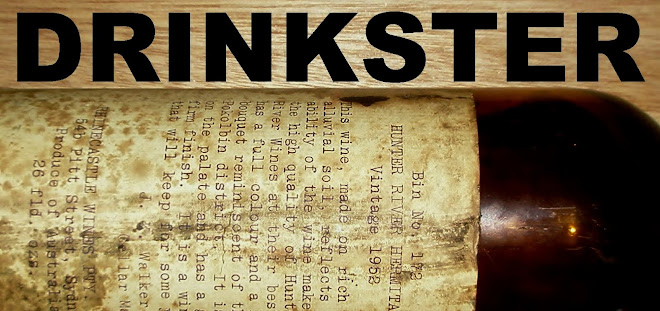
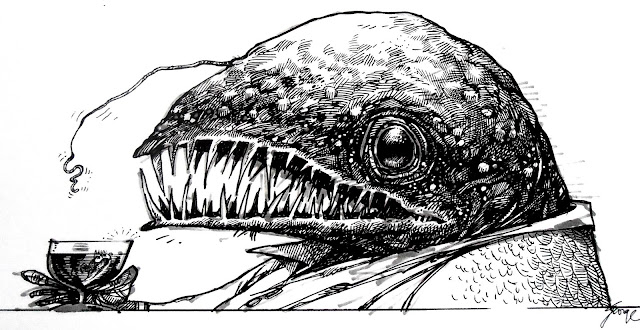
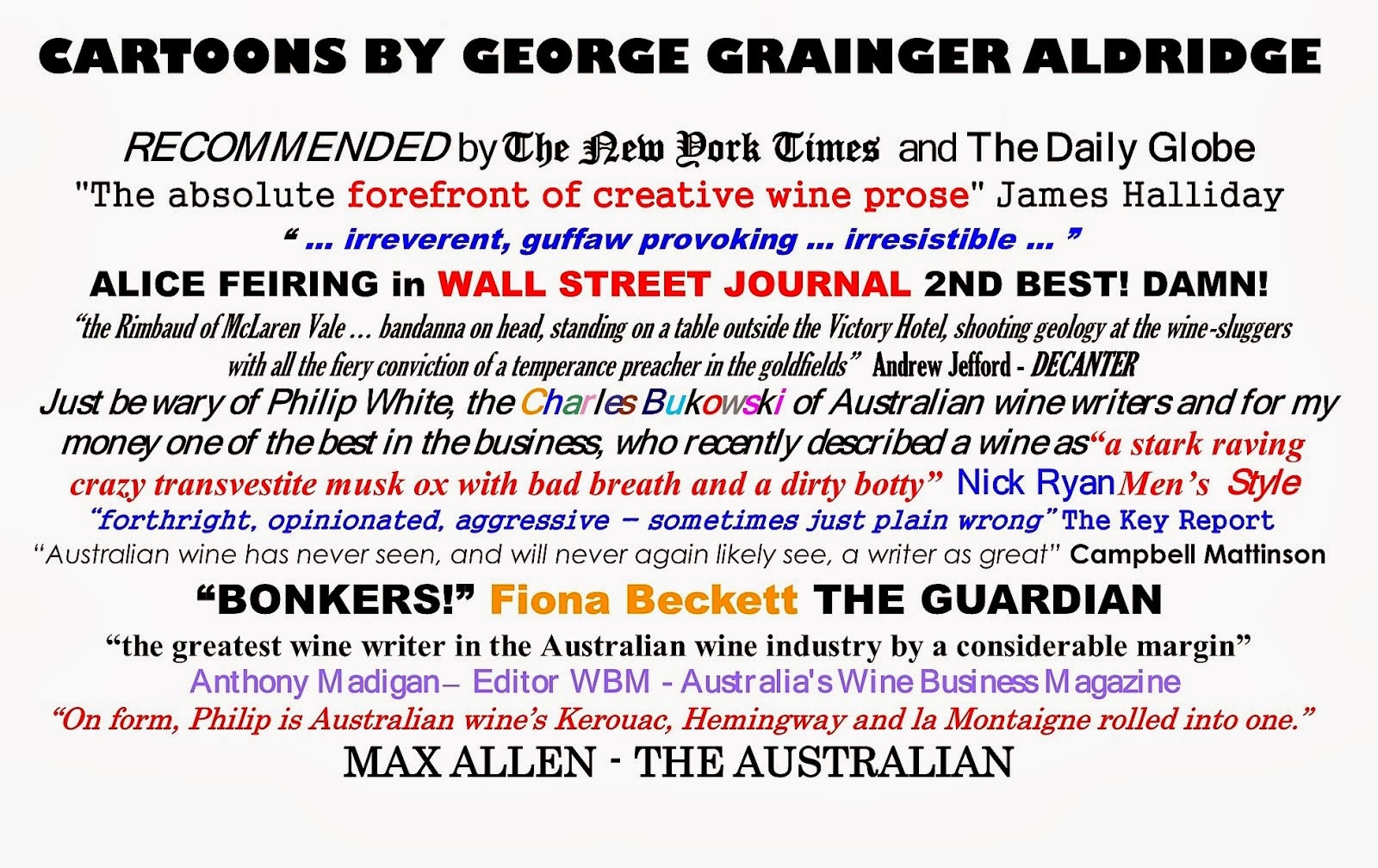








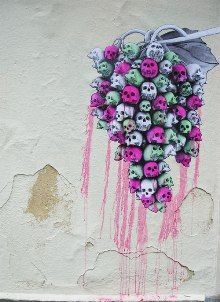






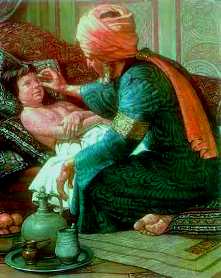

3 comments:
On matching to first love:
Brighton Beach and B-A-R-O-S-S-A
P-E-A-R-L!!!!
Until BWS bought it out one of the best bottle shops was the one on Marion Road at Ascot Park.
Young blokes there had a terrific handle on what was good or not. And there was always a floor show on Friday afternoons.
🍸🍺🍷🍹
Your a snobbish bugger and a showoff whiteman
I want those Seaview reds again they were my intro to good reliable reds, Great memories.
Post a Comment